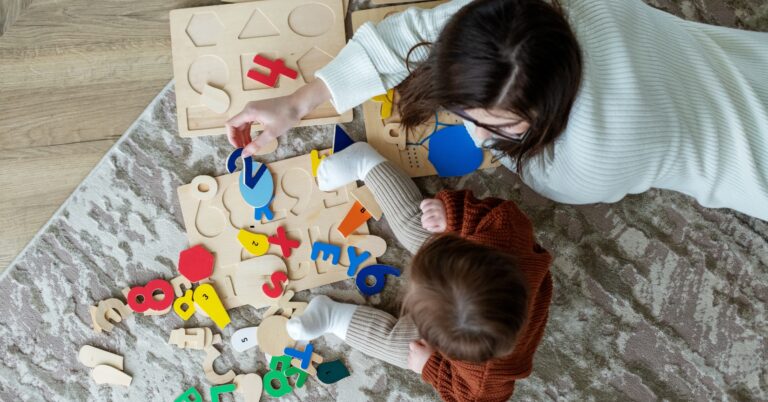Parents always aspire to understand their children, connect with them on their level, and nurture a bond that grows stronger with each passing day.
However, if your child is an introvert, you might sometimes feel like you’re trying to decipher a foreign language or navigate an uncharted territory. Does your child prefer to stay in their own world, seemingly detached from the hustle and bustle of everyday life?
How can you bridge this gap and better understand your introverted child’s unique personality, needs, and inner workings?
After numerous discussions with parents of introverted children and professionals in the field of child psychology, I’ve compiled a list of 7 key phrases that can help you connect with your introverted child on a deeper level. Use these as a guide to help uncover their thoughts and feelings, and to show them that you understand and appreciate their unique perspective.
1. “I respect your need for solitude”
Introverts often need solitude to recharge and process their thoughts and experiences. While it’s important for children to interact with others, introverted children might feel overwhelmed by continuous social interaction. They value their alone time and use it to rejuvenate their mental and emotional energy.
Using this phrase shows your child that you understand their need for space and quiet time. It conveys that you respect their boundaries, and are not trying to change them into an extrovert. It’s about accepting your child as they are, instead of trying to fit them into societal expectations of being outgoing and socially active.
There’s nothing wrong with being an introvert. It’s just a different way of experiencing the world. Offering your child this reassurance can help them feel understood and accepted, strengthening your bond with them.
2. “Let’s explore the world together, at your pace”
As a parent, you might feel the instinctive urge to push your introverted child into social settings to help them ‘come out of their shell’. However, this approach can often lead to more stress and discomfort for your child.
Instead, using this phrase communicates that you are willing to meet them where they are. It tells them that you’re ready to explore the world in a way that suits their pace and comfort level, whether that means going to a quiet museum instead of a bustling amusement park, or spending an evening reading together instead of at a noisy party.
This doesn’t mean avoiding social situations altogether. Rather, it’s about gradually introducing them in a way that respects your child’s natural tendencies. By doing so, you’ll show your child that their way of exploring the world is just as valid and exciting as any other, giving them the confidence to step out of their comfort zone when they’re ready.
3. “It’s okay to take your time to respond”
In our fast-paced society, we often feel the pressure to respond quickly – whether it’s to a question, a comment, or a decision. For introverted children who typically need more time to process information and formulate their thoughts, this can create unnecessary stress.
By using this phrase, you’re telling your child that it’s perfectly fine to take their time before responding. It acknowledges that their thinking process may be different from others, and that’s completely okay.
This reassurance can help your child feel more comfortable in their interactions with others, reducing the pressure they may feel to ‘keep up’. It also fosters a supportive environment where they can express themselves in their own time and in their own way. This simple yet powerful validation can boost their self-esteem and make them feel more understood.
4. “I’m here for you”
While introverted children might not always express their feelings outwardly, that doesn’t mean they don’t experience them deeply. They might be wrestling with a whirlwind of emotions on the inside, even if it doesn’t show on the surface.
By saying, “I’m here for you”, you’re extending an open invitation for your child to share their thoughts and feelings whenever they’re ready. It’s a gentle reminder that they’re not alone, and that they have a safe space in you.
This phrase can serve as a strong pillar in your relationship, fostering trust and communication, and ultimately helping you connect more deeply with your introverted child.
5. “Tell me more about that”
Introverted children usually don’t share their thoughts and feelings openly. However, when they do choose to open up about something, it’s essential to show genuine interest and encourage them to continue.
The phrase “Tell me more about that” can be a powerful tool in connecting with your child. It communicates to them that you’re genuinely interested in their thoughts and experiences, and that you value what they have to say.
This can boost their confidence and make them feel more comfortable sharing their thoughts and feelings in the future, paving the way for a deeper connection between you both.
6. “It’s okay to say no”
We often encourage children to say ‘yes’ to opportunities and experiences, promoting a culture of constant engagement. While this can be beneficial, it’s equally important to teach them that it’s okay to say ‘no’ when they need to.
For introverted children, constant social stimulation can be draining. Using this phrase assures your child that it’s perfectly acceptable to decline an invitation or activity if they’re feeling overwhelmed or need some alone time.
This might seem counterproductive in a world that often equates saying ‘yes’ with being open-minded and flexible. However, teaching your child the power of ‘no’ can help them establish boundaries, respect their own needs, and prevent burnout. This crucial skill can enable them to navigate social situations more comfortably and authentically in the long run.
7. “You’re perfect just the way you are”
In a world that often idolizes extroverted traits, introverted children might sometimes feel out of place or misunderstood. They may even feel pressured to act against their natural tendencies in order to fit in.
Telling your child that they’re perfect just the way they are can be a powerful affirmation of their worth. This phrase communicates that they don’t need to change who they are to be accepted or loved.
Reassuring them that their introverted nature is not a flaw, but a unique part of who they are, can foster self-acceptance and build their self-esteem. This affirmation can help them embrace their introversion as a strength and navigate life with confidence and authenticity.
Understanding Your Introverted Child
Raising an introverted child in a society that often values extroversion can be challenging. You may find yourself grappling with questions and concerns about how to best support your child’s unique needs and personality. However, understanding the nature of introversion can serve as a solid foundation for fostering a deep, meaningful connection with your introverted child.
Introversion is not a flaw nor a trait to be fixed. It’s simply a different way of interacting with the world. Introverts recharge by spending time alone, think before they speak, and often prefer quieter, more introspective activities. They have a rich inner world and can form deep, meaningful relationships. These qualities should not only be understood but also appreciated.
As parents, it’s essential to respect our children’s individuality and provide them with the emotional tools they need to flourish in their own unique way. This includes offering them the understanding, patience, and space they need to navigate the world at their own pace.
When you tell your introverted child that it’s okay to take time to respond or that their insights are valuable, you’re not merely saying words. You’re affirming their worth as an individual. You’re teaching them to honor their feelings and needs, fostering a sense of self-acceptance and resilience that can serve them throughout their lives.
Moreover, while these phrases are crucial, your actions play an equally important role. Show up for your child consistently, listen deeply when they share their thoughts and feelings, and respect their need for solitude. In doing so, you’ll help your child feel understood and loved while also foster an environment where they can thrive as their authentic selves.
Remember, as parents of introverted children, our goal shouldn’t be to change our children’s inherent nature but to nurture it. By doing so, we help them grow into confident individuals who understand and embrace their unique strengths, ready to make their own special mark on the world.







